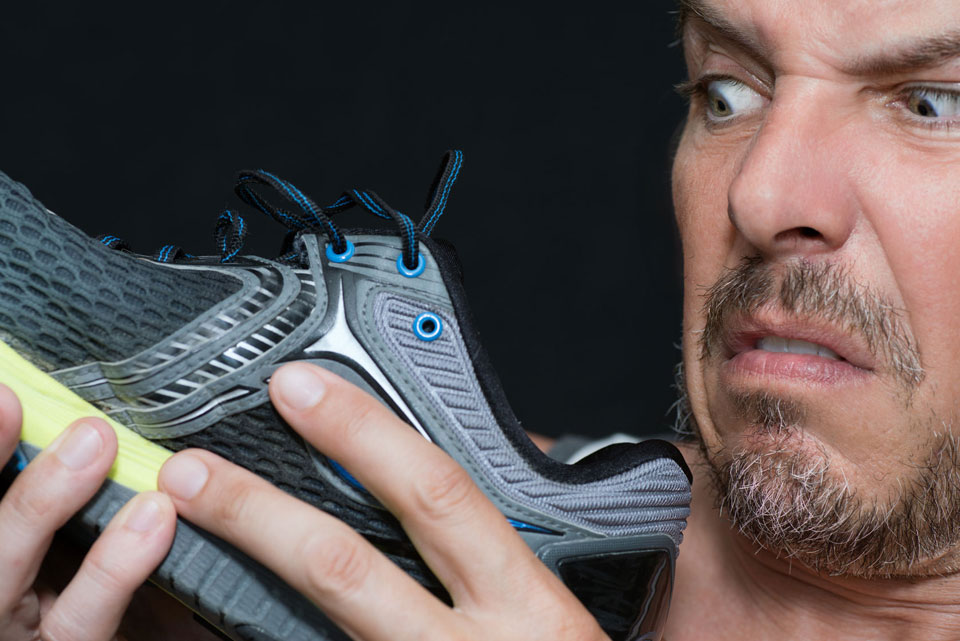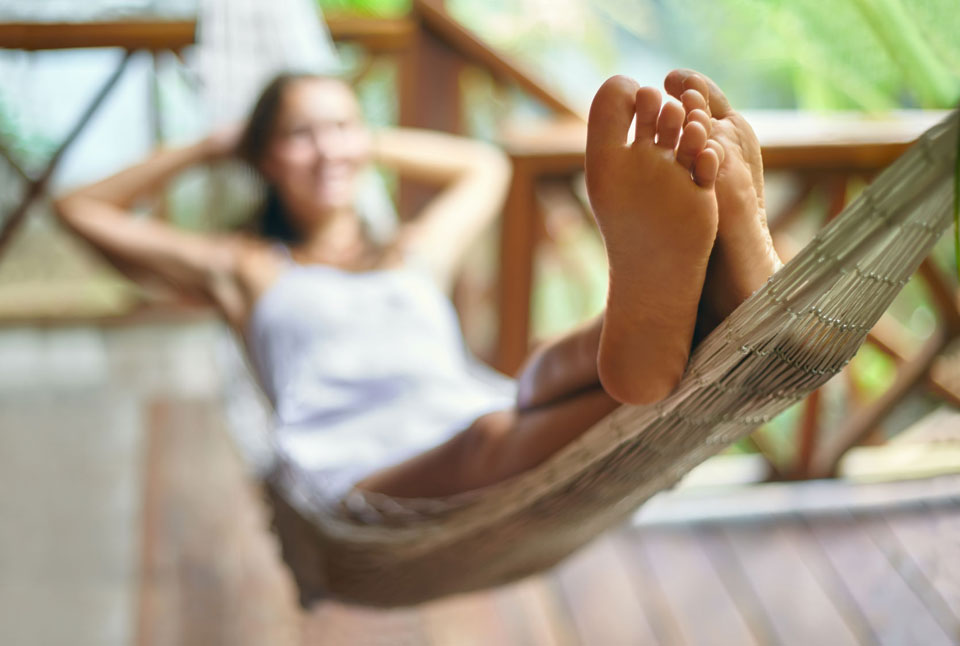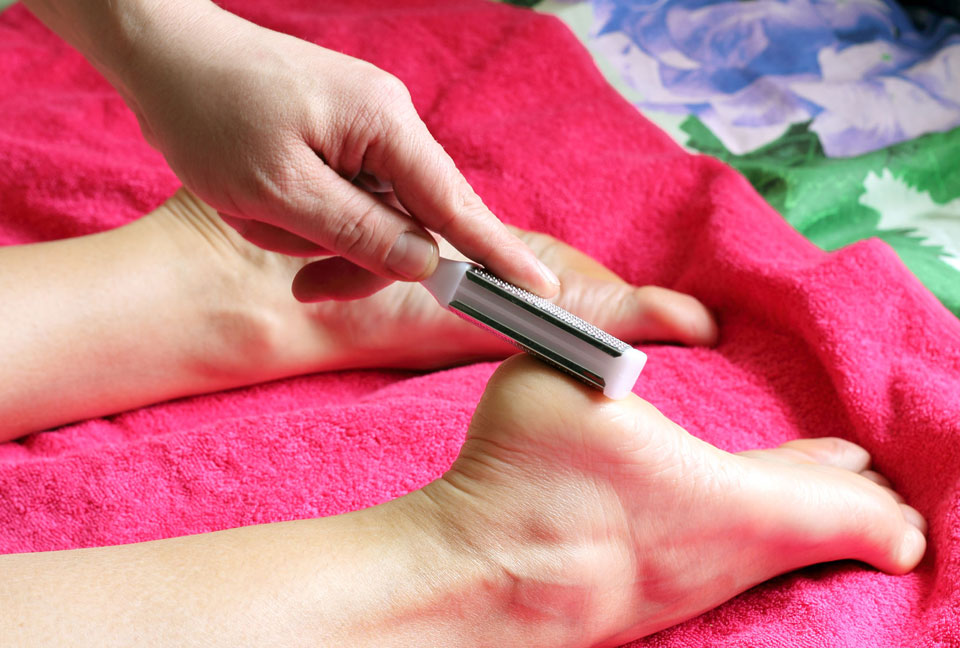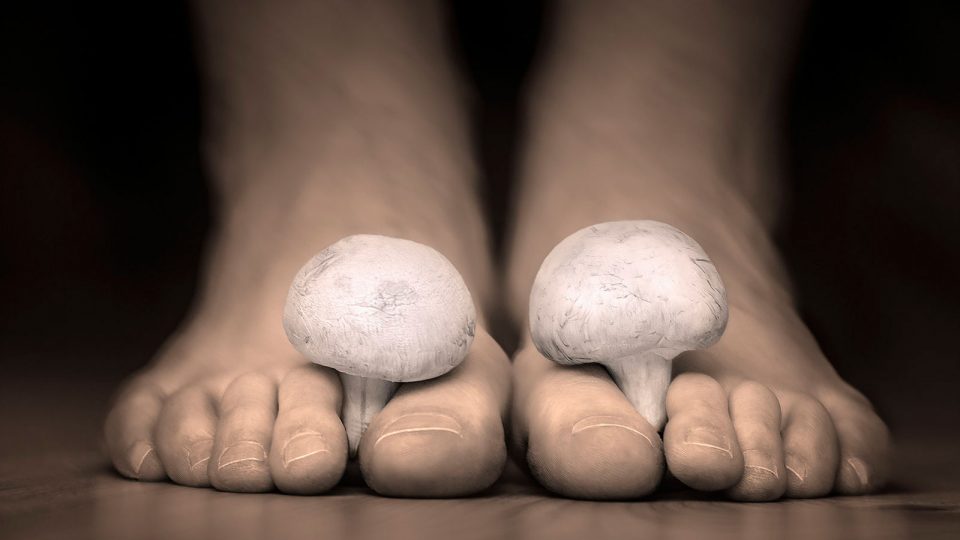You can’t ignore it. Your feet stink. Even after your shower. How can this happen, you ask? You bathe more often than most, buy odour-blocking socks and launder them with antibacterial detergents, yet “the smell” keeps coming back like the stray dog you once fed who won’t leave you alone.
If you’ve tried various remedies to stop the stink and all have failed, it’s time to look beneath the skin to figure out the source of your problem.
Why do feet stink?
The answer is no mystery: odor emanates from people’s feet for two main reasons: the biggest is sweat and the second is a lack of good hygiene practices. In either case, both can lead to bacteria build-up and before long, bacteria begins reproducing and you’ve got a foot odour problem. Bacteria equate your sweaty feet with a food buffet!
If the area’s moist and hospitable, they stick around, snacking on skin oils and dead skin cells. As bacteria thrive, they begin to eliminate waste in the form of organic acids and that’s the reason even your clean feet can smell badly.

Does everyone have stinky feet?
While around 10- to 15-percent of humans are heavy sweaters, everyone has the potential to develop foot odour courtesy of bacteria, but there’s one bacteria strain that’s particularly stinky: Kytococcus sedentarius.
It emits volatile sulfur compounds that produce a rotten egg odor that’s particularly offensive. But where does it all start? With your sweat glands, of course.
Humans “have over 250,000 sweat glands in their feet and that much porosity produces a pint of moisture every day,” according to FootVitals.com. Factor in heat and exercise and the glands in your feet are on the job secreting sweat 24/7.

5 external factors that cause foot odor
- Wearing the same shoes every day is a major reason feet smell. Wear a pair, sweat in them and don’t bother to wipe them out and you could notice an odour as early as the second time you wear them.
- Skipping a shower or failing to bathe feet often, especially in hot, humid weather, triggers increased sweating and sour secretions.
- Hormonal change — especially during adolescence or pregnancy — can cause excess sweating.
- Stress, the perpetual state in which everyone finds themselves, starts the sweating, bacteria-growth cycle.
- People suffering from hyperhidrosis (an excess sweating condition) are particularly prone to foot odour.
Common-sense tips for keeping feet bacteria-free
- Don’t wear the same pair of shoes two days in a row.
- Always keep your toenails clipped and clean.
- Wash your feet every day using antibacterial soap.
- Change your socks daily.
- Choose cotton or wool socks over nylon.
- Before washing, turn socks inside out to shed dead skin flakes.
- Use a foot deodorant or antiperspirant. Underarm products work in a pinch.
- Dry feet thoroughly after showering.
- As added insurance, swab areas between toes with rubbing alcohol.
- Invest in detachable medical insoles with odour-fighting properties.
- Choose leather and canvas shoes over synthetics; sandals ventilate feet nicely.
- As long as floors are clean, go around barefoot as often as possible.

Homeopathic remedies to try in addition to these…
- Sprinkle baking soda in your shoes; it kills bacteria efficiently.
- After you wash your feet, apply a zinc and castor oil cream to your feet.
- Soak your feet in tea for half an hour daily – for a week – letting the tannic acid work its magic.
- Soak feet 20 minutes a day in ½-cup kosher salt per quart of water. Don’t rinse. Dry thoroughly.
- Try 1 tablespoon baking soda per quart of water and soak for half an hour any time you like.
But, it’s not all about the sweat…
Podiatrists examine people battling sweaty, smelly feet every day, but many don’t show up for a consultation until they’ve tried every suggestion and over-the counter remedy on the market.
Too often, the diagnosis is Athlete’s Foot, a common condition that also invades skin that’s perpetually warm, moist and irritated. The good news is that Athlete’s Foot isn’t a bacterial problem; it’s a fungus-based infection.
Around 70-percent of all people will suffer Athlete’s Foot once in their lifetime, according to Medical experts. Telltale signs are easy to detect – burning, stinging, itching, redness and flaking – especially between toes where moisture accumulates.
Athlete’s Foot is contagious so don’t share linens and whatever you do, don’t share shoes or socks. There are lots of over-the-counter remedies for this fungal infection, but if nothing works, head for a doctor’s consult because the infection could get worse leading to open lesions, oozing, crusty blisters and worse.

How to treat Athlete’s Foot
You’ll have your choice of creams, sprays, powders, liquids and salves on pharmacy shelves. If there are too many from which to choose, pharmacists are trained to make recommendations.
In addition to anti-fungal medicines, begin a rigorous programme of washing and drying feet, changing socks often, wiping out shoes with disinfectant and dry them thoroughly before you wear them.
If the condition continues to get worse, a doctor may prescribe tablets that contain Griseofulvin, Itraconazole or Terbinafine, but these formulations are not without their drawbacks.
People relying upon antacids for stomach upset, those taking anticoagulant drugs or if your liver isn’t healthy for any reason, you may not tolerate oral anti-fungals, so make sure physicians know everything about your medical history before prescribing them.
Oh, and did you know that humans can catch Athlete’s Foot from their pets? It’s true. If you’re looking suspiciously at your pooch right now and your feet are nice and healthy, don’t you think you owe him an apology?
Do you have a home remedy for stinky feet or Athlete’s Foot that’s been passed down through the family? How about telling us about it?





